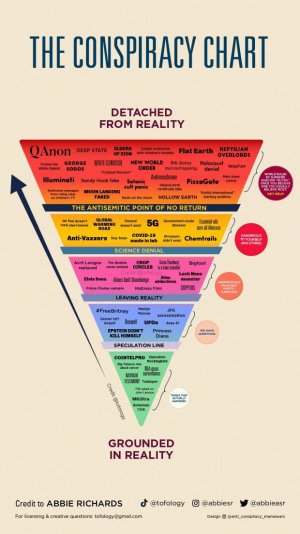Exactly.
Now people can you please explain what"POST"-"POST" MODERNISM is?
Iv'e Heard Legends!
myea so reading through the wiki, not a lot of it makes sense.
so we got this, and that's all fine. the issue is that there's several things going on here.
there's modernism as a period, and post-modernism
maybe as a period, and then post-postmodernism can be the period after post-modernism, and in that sense, i mean, sure, it can be a thing. it's very tiring seeing these wiki pages (even from reputed scholars mind you) fundamentally misunderstanding what postmodernism is about. like, it's true that postmodernism in art can deal a lot with irony, but it's not really the
point of it, irony is a
tonal approach to underline what's further, fundamentally, going on.
a big thing was that it's not like modernism was eradicated or whatever. it's not like it's impossible to be modernist today. most people are, even the dirty supposed-postmodernist left.
so, i know you asked for a definition on post-post, but we need to establish some things: the basic idea of post-modernism is in its reference to modernism. modernism thinks history as linear development, postmodernism sees it as an exchange of power. modernism considers things as having origins or roots, postmodernism sees things as part of a chaotic system with no inherent hierarchy of dependencies. the two also generally tend towards less and more plasticity, respectively, as to human framework of experience (not human
behavior (our "output"), but
predisposition (why we "output"); like body and senses are more "set" in eg phenomenology than like postmodern readings of the
cyborg manifesto or whatever (which in itself, i'm not sure wherever it's supposed to be placed, but it
does destroy the body as a common predisposition and has been used by modern pomos)). in the arts, modernism has an idea of incremental skill and betterment, while postmodernism thinks of art as an arbitrary range of styles whose quality (ie aesthetic effect, which
is the important part) is independent of style, skill, etc.
basically, this is what it means when postmodernism rejects the grand narrative; it can consider, on a practical level, whether things are more competent or more pleasant today than in earlier history, but it doesn't have the belief that we're currently
inherently better off than the past due to some historical development. postmodernism much more cares about
interrelations of power than causal "roots" to whatever's going on, specifcally with the innate idea that the world is always tending towards better. like, they recognize things influence each other, but a lot of early post-modernism was rejection of then-psychoanalysis, for example, which sought to identify a single root for some ailment, over looking at a more complex (and indeed, infinitely more complex, and therefore near-inscrutable) picture.
this has nothing to do with irony.
i made an mspaint
this is also why it's such a clusterpoop to read random people's takes on postmodernism; the actual legitimate texts read very differently when it comes to linguistics, politics, anthropology, or the arts, as they emphasize different things. rejection of postmodernism through the rejection of irony, which seems to be the core of the wiki page, is only really relevant when it comes to the arts. like, have we rejected postmodernism because the arts use more classical skills and less irony? not really. postmodernism doesn't care. it cares about whether you fundamentally believe the world will naturally be Higher Leveled in 2100, even if your "build" ends up bad; postmodernism rejects this.
so where does this take us irt post-postmodernism? because modernism never disappeared, you know. if it's just about reembracing that the grand narrative still exists, it's just modernism again
--------
so, the examples; let's see what they are arguing irt what necessiates the idea of some new movement
"
tom turner is a humanist academic of gardening, so he concerns himself mostly with a subset of architecture. this is a rejection of postmodernism in the sense that the sources of inspiration are definitionally not arbitrary, but i might break it to him that remixing geometry, taoism and jung is a very postmodern approach to art when it comes to material technique. the question then is a reasoning. postmodernism at its core doesn't believe in timelessness.
"
cool, but it's another argument about the rejection of irony, this time by a scholar of literature
"
this is
asssssssss. postmodernists talk a lot about power relations yes, but the idea of victimhood is blown
way up outside actual postmodernist literature. if someone says postmodernists only care about victimhood, don't listen to them, they've watched too much youtube and read too little; even a guy like this. it's not consistent with postmodernist texts i've dealt with. again, the question of consistent victim-vs-opressor
is a grand historical narrative, which postmodernists reject categorically. that postmodernists then often care
a lot about victimhood is true, but the problem is that it's not a fundamental idea of the world. that's a very boomer take, and it's damning that it's called post-MILLENIALism, like, are you kidding me
"
another boring boomer take, bluntly, some of it makes sense (like, the state of online socialization is so complex it doesn't align well with older modernist models, & at the same time, it's a period much different from what post-modernism used to describe; this is indeed a temporal switch in time), but most of it is just this kirby guy using it as a vehicle to rant about media he doesn't like
"
like, oh yes, the reputably skill-less, banal works of the blair witch project and the office, what an awful dystopia of life
"
last one on the page; now this is interesting, and sure. but the issue is that most earlier historical movements
within modernism has considered whether something could be surely known, questioning it, often rejecting that we can't know anything for sure and whatever, and then reintegrating it into modernism as a new position. that's part of a number of modernist thinkers and principles. some is also just plain weird. like i've read derrida and foucault, i wouldn't call either of them uninformed. but i haven't read more on this
----
in general, the page is overall a mess and is either boomer crap (ironic as postmodernism was their era, it wasn't a 90s invention), or mostly concerns itself with artistic style, and neither really touches on the
core of what either modernism or postmodernism is about. it's all ancillary.







 what are you confused about?
what are you confused about?